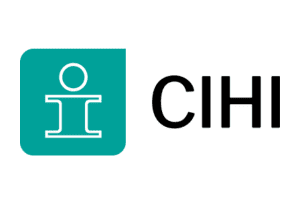It’s 2020. Who can actually email their doctor?


Electronic access to healthcare information and services for Canadians has slowly increased over the past decade, with momentum growing in the past two years.
Virtual care empowers individuals to manage how and where their personal health information is accessed in order to securely communicate with healthcare providers. It has been shown to lead to reduced wait times, increased referral speeds, and better healthcare outcomes.
2019 Commonwealth Fund International Health Policy Survey of Primary Care Physicians
Canada has made focused investments in some types of virtual care, such as telemedicine and telehomecare, which are now available at scale. We are also seeing quick adoption in some patient-focused areas. For example, 27 per cent of Canadians can now request appointments online — up from only 7 per cent in 2014.
Availability of virtual visits:
However, when Canadians were asked if virtual visits were available to them personally:
- 14 per cent said they could email
- 12 per cent said they could communicate with their physician by SMS or app
- 8 per cent said they could have a video visit
Canada is vastly lagging countries such as Germany, the Netherlands, New Zealand, and the US, where the majority of physician practices were offering this service to patients back in 2015 (link to Commonwealth Fund Study).
As a matter of fact, the 2019 Commonwealth Fund survey shows that gap is only growing (in eight of the 11 participating countries, 60% or more of physicians report offering email communication to their patients).
Interestingly, in surveys of physicians asking about reported availability of virtual care for their patients (Canadian Medical Association Workforce, Commonwealth Fund, and Infoway’s Canadian Physician survey), about 20% of Canadian primary care doctors offer email communication as an option. Only 12 per cent of Canadians stated this option was available to them.
What these results mean:
This gap suggests that patients may be unaware that their care provider offers the service, or that the service may only be offered to patients who subscribe to a premium plan offered by the clinic for a fee.
Physicians may be less inclined to interact with patients over email because most jurisdictions in Canada do not reimburse physicians for email consultations. Furthermore, email communication of a clinical nature may also be difficult to integrate into physician workflow and the overall patient record.
Nonetheless, other countries have figured it out and so should we. Probably the most elaborate is the system in Denmark whereby email communication with patients is reimbursed by the national health coverage.
ACCESS 2022:
Can you email your doctor? How would it make coordinating and accessing healthcare easier for your and your family?
ACCESS 2022 is building awareness to inspire action and help us achieve our collective vision of a new day in healthcare. Join the movement!
Bobby Gheorghiu is senior manager, trending and performance, at Canada Health Infoway




